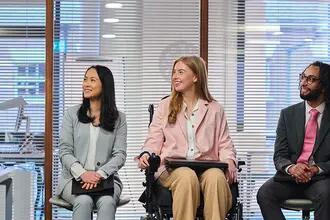
Photo Illustration: Getty Images
Research with potential to expedite data-sharing among medical researchers wins support of NIH
A $3.2 million grant from the National Institutes of Health will support work by Rutgers Business School professor Jaideep Vaidya and a team of collaborators from two other universities that aims to develop more efficient processes for analyzing genomic data.
In addition to the NIH funding, a $250,000 grant from the National Science Foundation will support a separate research project that Vaidya and his team at the Rutgers Institute for Data Science, Learning and Applications are working on to create a theoretical framework around the use of synthetic data, ranging from a formal definition and philosophical considerations to a comprehensive system of evaluation.
The research is considered exploratory, with the potential to grow into larger projects, said Vaidya, a distinguished professor and acting chair of Management Science and Information Systems at Rutgers Business School. “Getting these grants is critical,” Vaidya said. “If you want to have people working on this as a large institutional project, the money is important but so is the energy of having other people and organizations interested in this research. It becomes a way to engage other people in the work as well.”
The $3.2 million that the NIH’s National Libraries of Medicine and the National Human Genome Research Institute is funding over five years will support research being done by Vaidya and other researchers at Rutgers, including a statistician and a physician, along with academics from Case Western Reserve University, and the University of Texas.
The objective of their work is to help expedite the ability to access and share genomic data that is critical to researchers who are studying diseases in different populations of people in their efforts to develop treatments. The problem, Vaidya explained, is the long process required before researchers and organizations can access the different data sets and determine if it’s helpful and useful to them.
The work being funded by the NIH will try to develop a way researchers can preview different sets of data in a privacy-preserving way and help to make the entire process of accessing the information more efficient. The goal of the research would be to integrate the new methods into processes dictated by federal review boards that monitor biomedical research.
“This could make a huge difference in the way research will be conducted,” Vaidya said.
The research being funded by the NSF is also considered early stage because it is seeking to define synthetic data – an artificial variant of real data – that is a privacy enhancing technology amid the increasing use of artificial intelligence to perform analytics.
“The problem is that there’s nothing out there that formalizes the use of synthetic data. We really need a formal understanding,” Vaidya said. “The funders of this grant recognize the urgency of that.”
In January, Vaidya was named a fellow of the American Association for the Advancement of Science. This spring, he and his team of researchers won first place in the financial crime prevention track of an international Privacy Enhancing Technologies (PETS) Prize Challenge co-sponsored by the United Kingdom and the United States.
- Susan Todd
Press: For all media inquiries see our Media Kit


